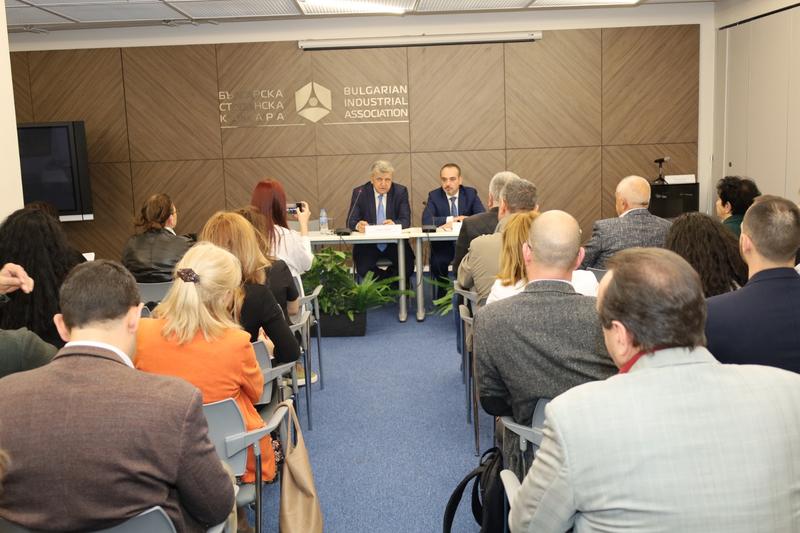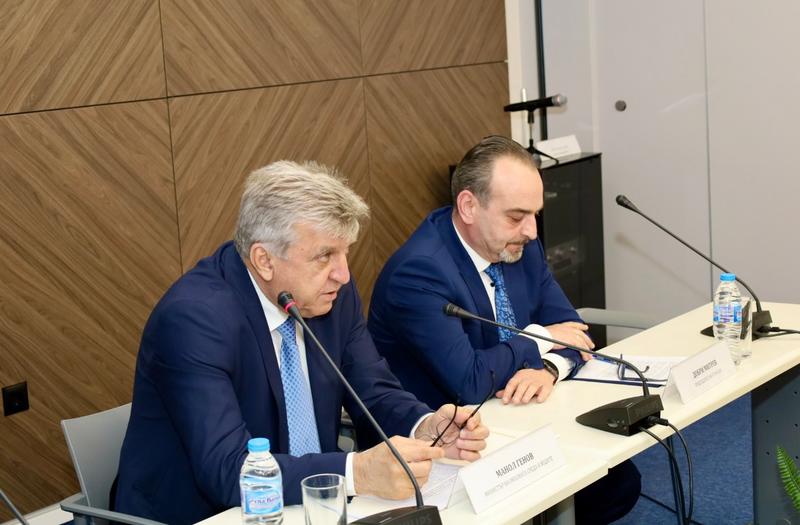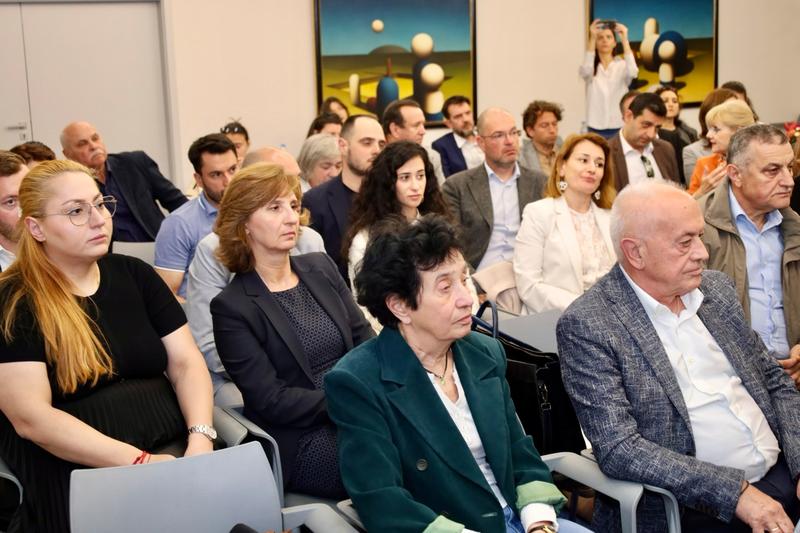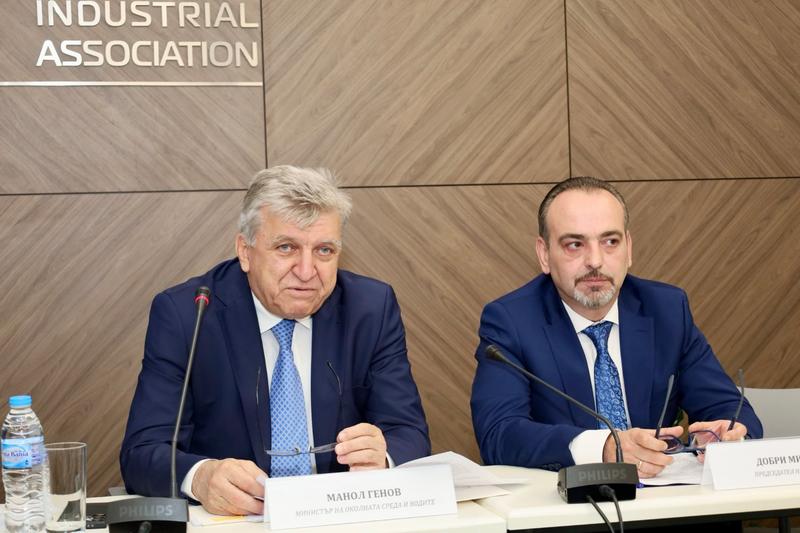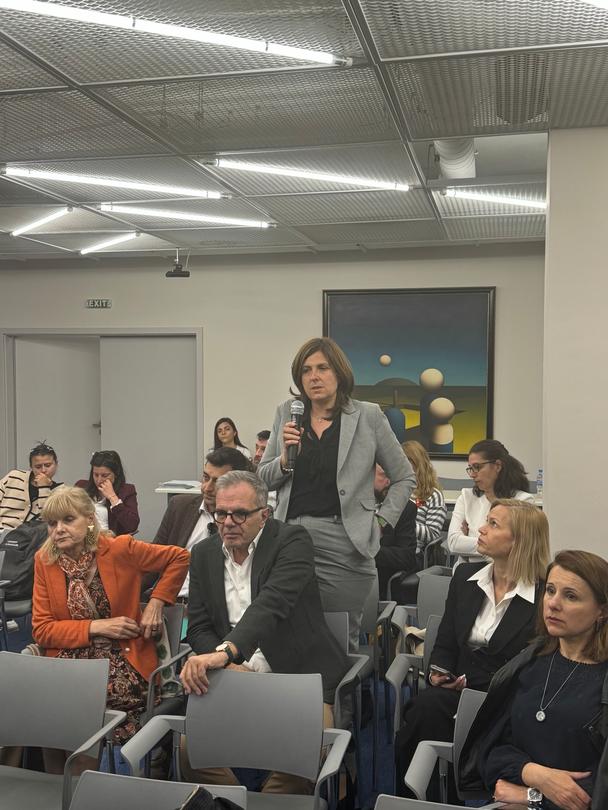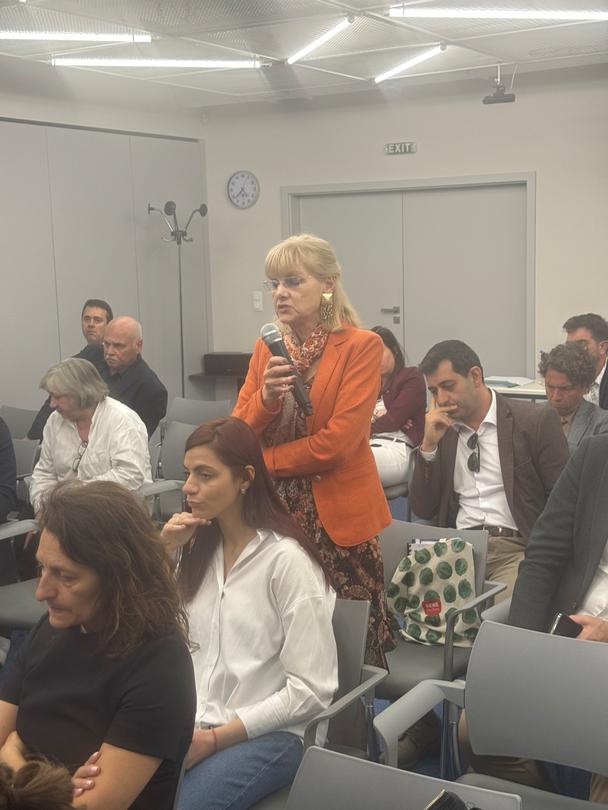Minister Manol Genov discussed key challenges faced by the business with members of the Bulgarian Industrial Chamber
02 May, 2025 | 12:47“In our investment intentions, we should never come into conflict with nature, as it is stronger than us and takes revenge.” With these words, the Minister of Environment and Water Manol Genov launched a working meeting at the Bulgarian Industrial Chamber (BIA) with representatives of industry organizations and enterprises that are members of the Chamber.
The Minister responded to a number of questions and expectations from the business community, mainly related to environmental regulatory regimes, effective solutions for the circular economy, waste management, decarbonization of the economy, and implementation of requirements from European directives.
Meetings between members of the Chamber and representatives of the Ministry of Environment and Water are frequent. “For us, the topic of clean industry has been relevant for more than 30 years, because we represent responsible businesses. Therefore, I am grateful that Minister Genov accepted the invitation to answer specific questions and get acquainted with the pressing problems,” said the Chairman of the BIA Dobri Mitrev at the start of the meeting.
Representatives of industry organizations and enterprises from various sectors of industry participated, including chemical, metallurgical, recycling, polymer, woodworking, tobacco, textile, mining and processing of mineral raw materials, manufacturers of household electrical appliances, poultry and pig farmers, producers of vegetable oils and oilseed crops, soft drinks, brewers, traders, and water and sanitation operators.
A question was raised about the need to expand the scope of the Carbon Border Adjustment Mechanism (CBAM), which is currently focused on carbon-intensive industries such as steel, cement, and aluminum. The the position of the business is that its expansion to downstream products made from these materials - such as refrigerators, washing machines, and air conditioners - would ensure fairer competitive conditions. Minister Manol Genov confirmed that this is also the government's position. "Without this expansion, European manufacturers would bear higher costs from carbon prices for materials, such as steel and aluminum, which undermines their competitiveness," he said, specifying that this position is also supported by other EU member states, but negotiations on expanding the scope are still pending.
The duration of the procedure for issuing a Comprehensive Permit (CP) according to the provisions of the law is 190-200 days, and in the most frequent cases this period needs to be extended due to the need for operators to supplement and refine the application, summarized Minister Genov in response to a proposal to simplify the regime for issuing or amending the comprehensive permits. The Minister explicitly confirmed that in order to comply with the deadline for the procedure for issuing the permit, the quality of the documentation submitted by the operator is of utmost importance, so that the Executive Agency for the Environment does not have to return the application to the operator for supplementation and correction. This would save one month from the total duration of the procedure.
The transposition into Bulgarian legislation of amendments to the European Directive on Industrial Emissions was also a main focus of the discussion. The new directive affects a larger number of poultry and pig breeding installations, given that the capacity above which installations are subject to issuing a complex permit is being reduced and a new registration procedure is being introduced for installations with lower capacity. Minister Manol Genov emphasized that the new requirements are directly aimed at protecting soil and groundwater from pollution. He informed that the deadline and entry into force for installations falling within the scope of the new Directive will be in the first half of 2030 at the earliest, since after the adoption of the act by the European Commission, the requirements will enter into force in stages over a four-year period. The Minister made a committment, after the adoption of the act by the Commission, to inform all affected installations and provide methodological assistance.
Minister Genov also announced that the MOEW team is working to introduce regulatory changes that would ease the regime for the use of irrigation water. At the same time, in the schedule for dams for May, applications for energy purposes are limited in favor of the needs of agriculture for irrigation.
The Minister of Environment and Water expressed his expectation that by mid-May, the models for paying the garbage fee in accord with the "polluter pays" principle will be presented under the implementation of a project by the National Association of Municipalities in the Republic of Bulgaria of 5 million leva, financed under the Environment Program. "When we make serious decisions about waste management, we need everyone to participate," said Minister Genov, sharing that changes are being prepared in the Waste Management Act, which will impose higher sanctions and give more powers to municipal authorities to deal with unregulated landfills in the country.
